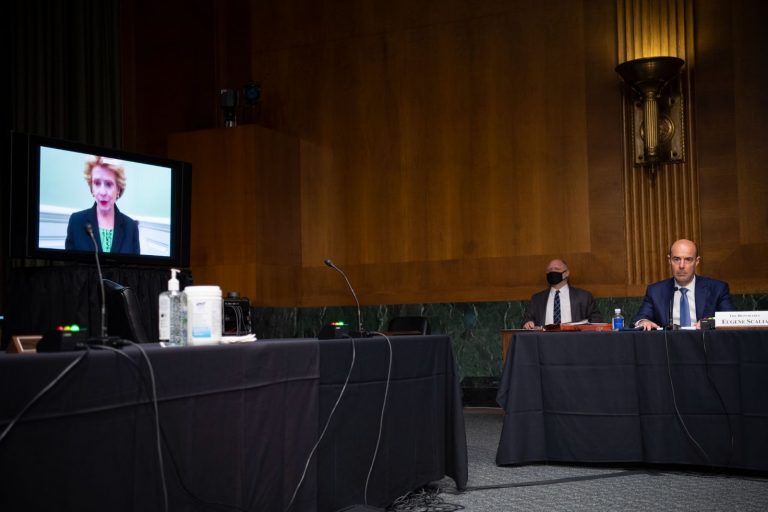According to experts, hundreds of billions of dollars in unemployment benefits distributed by the federal government to those affected by the Coronavirus Disease 2019 (COVID-19) pandemic may have been diverted to criminal syndicates.
The temporary Pandemic Unemployment Assistance (PUA) program implemented by the CARES Act in March 2020 was designed to provide unemployment benefits to workers who would otherwise not qualify to receive the benefits. Beneficiaries include contractors, part-time employees, self-employed freelancers, and contracted workers.
Speaking to Axios, Haywood Talcove, CEO of global data analytics firm LexisNexis Risk Solutions, estimated that fraudsters stole more than 70 percent of the unemployment funds and presumably left the country. Talcove added that the funds ended up in Russia, China, Nigeria, and other countries with criminal syndicates.
Blake Hall, CEO of ID.me, a fraud prevention service, also talked to Axios and estimated around 400 billion dollars has been lost to false unemployment insurance claims. In other words, around 50 percent of the allocated funds were stolen.
Behind the scam
Last year, both Trump and Biden passed aid packages to offset the steadily declining unemployment insurance aid. The aid, mainly provided through the PUA, was aimed at supporting citizens through the pandemic and lockdowns.
Success
You are now signed up for our newsletter
Success
Check your email to complete sign up
However, criminals quickly created an extensive scam involving the aid packages. By the beginning of November, an estimated 36 billion dollars out of the 360 billion dollars allocated for unemployment benefits had been siphoned away by fraudsters.
Moreover, this was a conservative estimate given by the Inspector General of the Labor Department. “This is the largest fraud attack on the U.S. ever. Period, and it’s not even close,” Blake Hall told Axios.
Although scams often appear whenever government funding schemes are announced, the magnitude of the alleged fraud is significant. Identity theft is one of the most common forms of fraud in these situations, in which criminals gain access to personal data and use it to file claims. Victims are tricked into verifying their identity and accessing job opportunities or claiming rewards.
The state was expecting false claims from people who did not need aid or a scenario where identities of people who actually needed aid got stolen. However, a historic rise in demand for unemployment benefits, pressure to disperse funds as quickly as possible, and a weakened workforce resulted in lapses in verification and fraud prevention.
By the time the relief package was ready to be passed in December last year, several states had doubled up on measures to prevent fraud. For instance, New Mexico required five days between the submission of the benefits application and the issuance of funds in order to verify whether the applicant’s bank account was connected to a recognized crime syndicate. If any suspicious activity was found, the claim would automatically be locked.
Both the state and federal government have become more stringent when dispensing unemployment benefits, adding additional steps for workers to verify their eligibility in the most recently signed 900 billion dollar COVID-19 relief package.
Bill McCamley, who served as the cabinet secretary of the New Mexico Department of Workforce Solutions, stated in an interview with CNBC, “It’s a little bit of a high wire act because there’s so much pressure to get money out.”
The Republican House recently introduced the Combatting COVID Unemployment Fraud Act of 2021 (H.R. 3268) on May 19, 2021. The bill is designed to prevent fraud through the verification of factors such as identity, earnings, and prior employment details, provide relief to victims of identity theft or unemployment fraud, and establish a joint COVID Unemployment Fraud Taskforce to recover fraudulent payouts.















